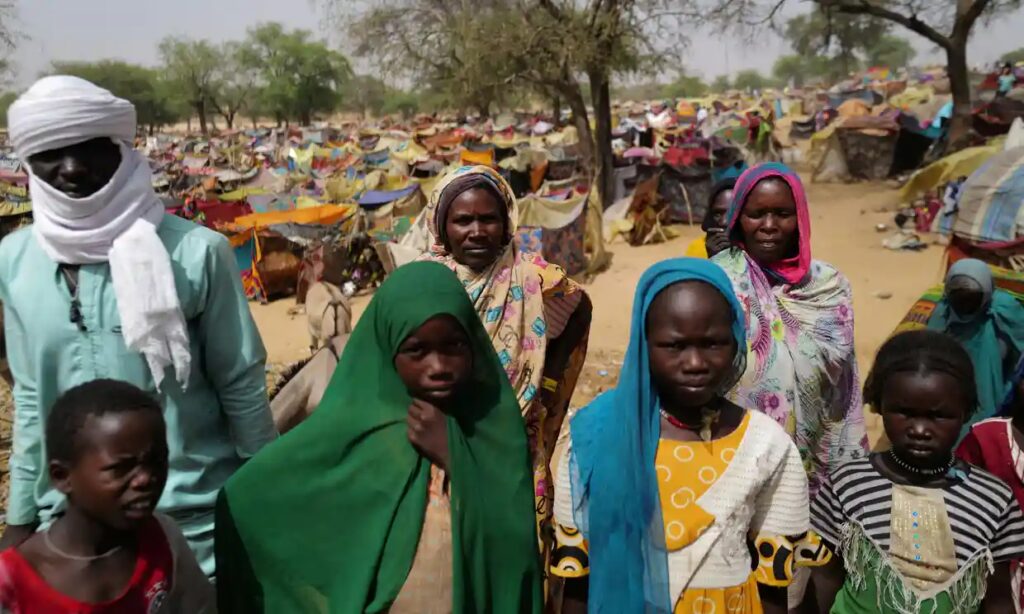
Coming rainy season threatens 80,000 living in ‘heartbreaking’ conditions in vulnerable border region after fleeing war at home
Tens of thousands of Sudanese refugees, many of them children, who have crossed the border into Chad risk a “major humanitarian disaster” when the rainy season begins within weeks, a Red Cross official has warned.
About 80,000 people have sought refuge in the country to the west of Sudan as weeks of fighting between two warring generals forces hundreds of thousands from their homes.
But the refugees, mostly women and children, are arriving at such speed that the humanitarian operation on the ground will struggle to move them all to places of safety before the rains come in late June, potentially cutting off much of the remote border region.
“We know we won’t be able to relocate all of them before the rainy season,” said Pierre Kremer, of the International Federation of Red Cross and Red Crescent Societies (IFRC), according to Reuters.
“It’s a bit of a race now to relocate as many as we can,” he said. “We run the risk of a major humanitarian disaster in this area.”
Ali Salam, a Chadian-American working with the Sudanese American Physicians Association (Sapa), said conditions in the refugee camp he had visited in Koufroun, north of Adré, were “heartbreaking”.
Salam, who was in the camps at the weekend as part of a Sapa team assessing the technical needs of the relief operation, said he had been shocked by the lack of basic assistance to the refugees, particularly those who arrived soon after fighting broke out on 15 April.
“Those who have [been there] more than one month have a lack of drinking water. They have a lack of food. They have a lack of shelter and they have a lack of medical assistance,” he told the Guardian.
While some “very lucky” people had been given plastic sheets to sleep under, others were sleeping and sheltering from the sun under trees, and making makeshift shelters with their clothes.
The imminent onset of the rainy season would only make this worse, he added. “Last week, it was raining a little bit. Everyone’s scared now that when the rain starts [falling heavily] it will be very, very bad. They need shelters at least; some tents and some shelters.”
He added that fears were also growing about the potential for a jump in diseases such as malaria once the rains came.
Kremer, who was speaking after visiting a makeshift camp of 30,000 people by the village of Borota, about 45 miles south-west of Adré, said there were reports of snake and scorpion bites among the refugees, who are sleeping on the ground.
About 80% of the new arrivals in Chad are estimated to be women and children, with many of the latter having been separated from their parents amid the fighting. Teenagers were often travelling alone with infants, the UN refugee agency told Reuters.
“I’m overwhelmed to see them,” said Eujin Byun, a spokesperson for the UN high commissioner for refugees (UNHCR). “It’s a lot of children and it’s really heartbreaking as they don’t know where their parents are.”
The UNHCR wants to move refugees gathering in border areas to one of Chad’s 13 existing refugee camps and establish five new ones. Before the most recent conflict in Sudan, Chad was already hosting about 600,000 refugees, the largest refugee population in central Africa, including 400,000 from Sudan.
The UN’s World Food Programme has said it needs $160m (£127m) to provide food over the next six months for the new refugees, as well as those it was already supporting.
